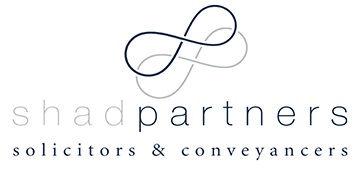If you are a tradie, are married to a tradie or have tradie mates, this is important. Unless you are the luckiest or least accident prone individual in the world it is highly likely that you will suffer some kind of accident or injury during the course of your working life.
The question is what if this happens when you are working either for yourself or someone else and the accident isn’t your fault, can someone else be liable to you for your loss and perhaps have to pay you damages for pain and suffering? And will this be the case even if you are self-employed at the time the accident occurs?
What if I am injured while working for someone else?
Many types of employment carry with them a degree or risk of personal injury often on a daily basis.
Tradespeople are often overly represented in workplace injury statistics compared to the wider workforce when it comes to workplace injuries by virtue of the fact that they are regularly carrying out more physically demanding work than say an office worker or someone with a more sedentary occupation. However, even workers in sedentary roles can be injured at work.
If you are injured during the course of your employment, whether it is from falling off a roof, slipping over on a wet floor surface or a thousand other possible workplace injury scenarios, your employer will most likely be responsible for your injury and you may be able to make a claim for workers compensation.
What will workers’ compensation insurance cover?
Depending on a range of factors including where you live in Australia and the nature and severity of your injuries, the workers’ compensation coverage held by your employer may be entitled to some or all of the following:
- Weekly payments where a workplace injury results in a loss of earnings;
- Medical, hospital and rehabilitation expenses to cover so or all of the medical treatments and services you receive;
- Return to work assistance to cover costs and support services to enable you to get back to work;
- Property damage claims to cover you for any property damage suffered to artificial aids or clothing as a result of your workplace accident;
- Lump sum payment called a commutation which is an agreement to pay any workers’ compensation entitlements to you as a lump sum;
- Work injury (common law damages) which are a modified form of the damages you could claim at common law may be available in certain circumstances; and
- Family support and funeral expenses may be made to a family member who was totally or partially dependent for support on the injured worker at the time of the worker’s death.
What if I am self-employed and injured on a client’s property?
Although you may not have an employer, if you are injured during the course of carrying out work at a client’s property or premises then you may still be able to make a claim for compensation. Many homeowners have public liability insurance that covers them for visitors to the property.
Whether that insurance extends to cover tradespeople or other individuals who attend the premises for work (for example cleaners) will need to be considered carefully. That said, you should never assume that cover does not exist and it is always best to seek legal advice to ensure you do not miss out on any compensation to which you may be entitled.
Even if a homeowner or client does not have insurance that will cover an accident on their premises this does not mean that they are not liable for your injury. For example, if a homeowner knows that their floor beams are rotten but engages you to come and polish and clean their floorboards and you fall through the floor then they may well have failed in their duty of care to you and could be found liable for your injury.
Of course without a policy of insurance to cover the cost of any claim you may find it harder to recover any monies awarded to you but this does not mean the claim is not worth investigating.
Insurance for the self employed
You cannot be a worker in your own business. For example, if you are a sole trader or proprietor of a business or member of a partnership then you will not be able to take out workers compensation insurance to cover any injuries you may suffer in the course of your work or carrying out your business.
However, many financial institutions and insurance companies now over a wide range of personal accident and illness policies including income protection insurance policies which may provide the cover you need should you be injured while working.
While you are not legally required to take out one of these policies in order to be self-employed it is worthwhile considering what would happen to you and your loved ones if you were injured in the course of your work and unable to work for any length of time.
It is important that you are aware of your rights in relation to compensation if you are injured while working for someone else and, for the self-employed, what options you have as an alternative to workers compensation.
If you or someone you know wants more information or needs help or advice, please contact us on 02 9790 7000 or email [email protected].
